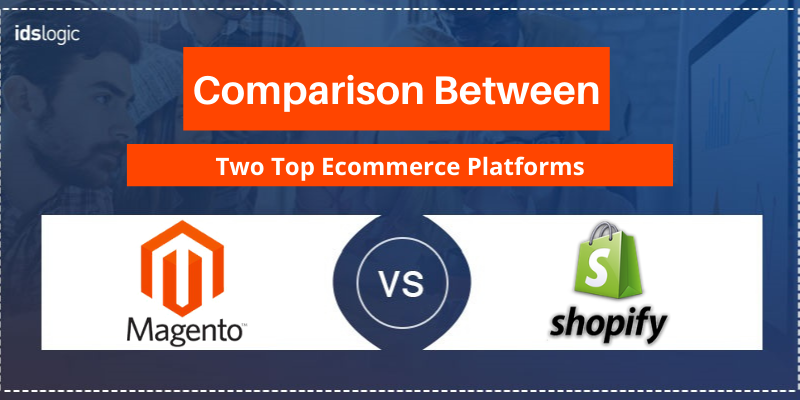Choosing the best ecommerce platform can be a challenging task. But today we have thousands of options before us and one is better than the other. But to make your e-store highly profitable for you, it is important to pick the platform that meets your initial needs.
Having a tough time to choose between Shopify and Magento? Here is our guide that offers a complete comparison between the two, which will highlight the differences and help you decide the best platform for your business.
Magento Vs Shopify: Understanding the Difference
In general, many small online stores are inclined towards Shopify and this is because it is easy to use and is attractive to new online store owners. When it is about Magento, the general perception is that, the platform is most preferred by large sized or medium sized online stores.
Control and Customization:
Having control of the site is one of the most prominent and fundamental differences between Shopify and Magento.
Shopify is a hosted solution and does not need a high level of technical or development expertise which means that you don’t have to be in trouble while hosting or configuring your site. But this also restricts your access to the source codes thereby, limiting your options for customization.
Magento is a self-hosted platform and this means that you will enjoy complete control over your choice of servers and hosting. Because of its open source nature, you can enjoy endless customization possibilities and have complete control over the look and feel of your store.
Speed and Performance
Website speed and performance are correlated and the users don’t like to wait for a long time for the ecommerce site to load. If your online store shows low performance in any these areas, then the user is likely to move to your rival store.
With Shopify, you don’t have to think about the page loading speed and the overall performance of your store. Since it is a hosted solution, the performance is great, but you will have no control on the hosting environment and server adjustment.
On the other hand, Magento is popular for its robust performance you have the option to choose the best server and make all the necessary changes in it to boost the performance metrics.
Multi brand / Multi store management:
This is one of Magento’s key selling points and this allows the merchants to manage multiple brands from a single interface. The main benefit of this feature is that the product catalog can be easily shared across different sites with the freedom to make changes to the various entities. It is said that Shopify is also working on this feature and will release the feature soon.
Basic store functionality:
Both Shopify and Magento offers the basic features and functionalities of the store that are fairly powerful to use for the website. Shopify is easier to setup when compared to Magento, and you will also find the basic features like checkout, shopping carts, product pages and etc. in both of them.
The main difference is that Magento has more advanced and intermediate features that are built into the system. But with Shopify, you will have to get some extended apps for some added functionality.
Let’s take a look at the features of both the platforms:
Magento:
- Tools for advertising and marketing
- Catalog management
- Fully SEO centered
- Mobile friendly commerce
- Complete site management
- Order management
- One-page checkout
- Multiple shipping and payment options
- Tracking, analytics and reporting tools
- Customer service and international support
Shopify:
- Secure shopping cart with 256 bit SSL
- Mobile commerce ready
- Abandoned checkout recovery
- 100+ professional themes
- Fill blogging platform
- Multilingual feature with 50+ languages
- Search engine optimization features
- Product reviews, discount codes and coupons
- 70 payment gateways
- Easy social media integration




